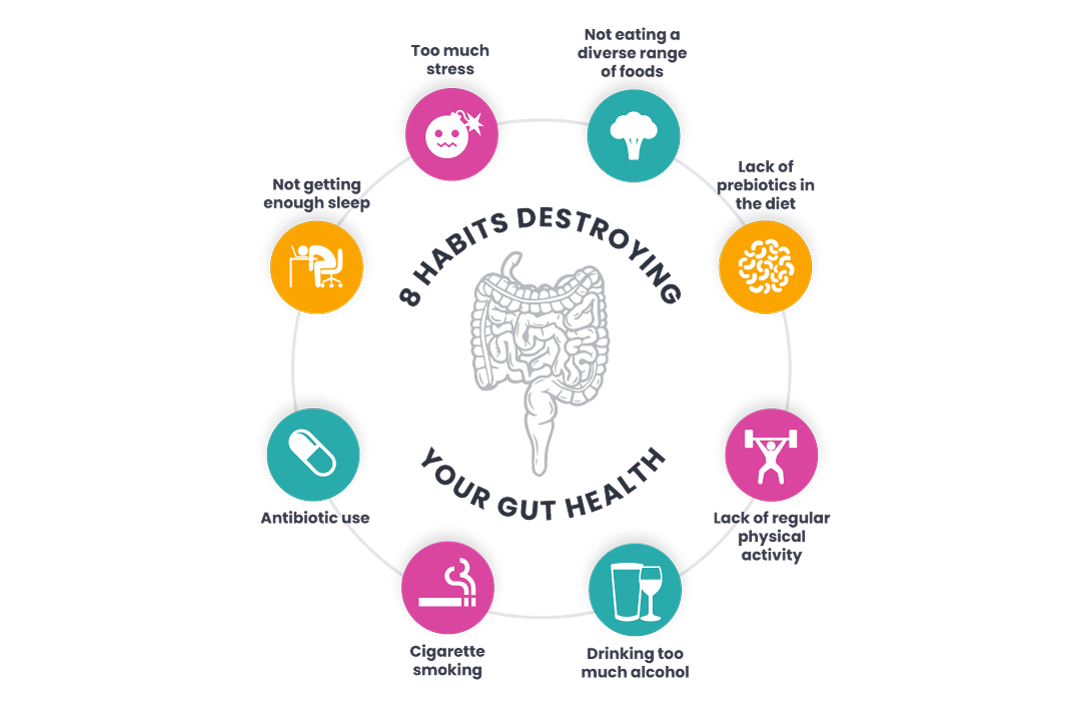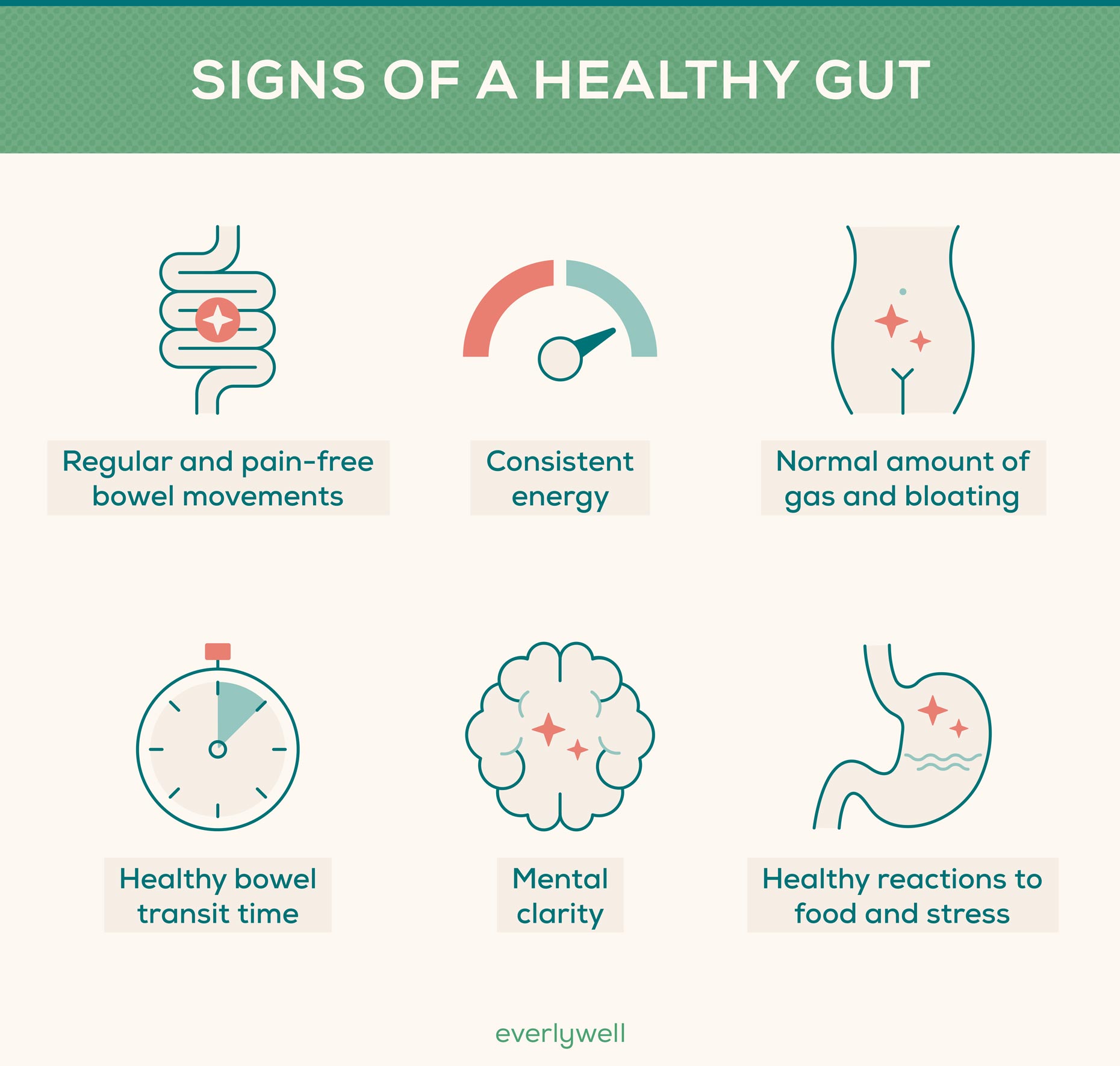How your lifestyle affects your gut health: Exploring the Connection

Delve into the intricate relationship between your lifestyle choices and your gut health in this captivating exploration. From diet to stress management, discover how each aspect impacts the well-being of your gut in unexpected ways.
Unravel the mysteries of how simple daily habits can make a significant difference in your overall health and vitality.
Introduction
Gut health refers to the balance and function of the microorganisms that reside in the digestive tract. It plays a crucial role in overall well-being, impacting various aspects of health such as immunity, mental health, and digestion. Lifestyle choices, including diet, exercise, stress management, and sleep patterns, have a significant influence on gut health.
These choices can either promote a healthy gut microbiome or disrupt its balance, leading to various health issues. Understanding the impact of lifestyle on gut health is essential for maintaining optimal well-being.
Impact of Diet on Gut Health
A diet rich in fiber, fruits, vegetables, and probiotic-rich foods can promote a diverse and healthy gut microbiota. On the other hand, a diet high in processed foods, sugar, and unhealthy fats can negatively affect gut health by promoting inflammation and reducing microbial diversity.
Effect of Exercise on Gut Health
Regular physical activity has been shown to have a positive impact on gut health by promoting microbial diversity and reducing inflammation. Sedentary behavior, on the other hand, can lead to imbalances in the gut microbiome and increase the risk of gastrointestinal issues.
Role of Stress Management in Gut Health
Chronic stress can disrupt the balance of the gut microbiota and weaken the intestinal barrier, leading to inflammation and digestive problems. Implementing stress-reducing techniques such as meditation, yoga, or mindfulness can help support a healthy gut environment.
Importance of Sleep Patterns for Gut Health
Sleep plays a crucial role in gut health by allowing the body to repair and regenerate. Disrupted sleep patterns can negatively impact the gut microbiome, leading to imbalances and increased susceptibility to gut-related disorders. Prioritizing quality sleep is essential for maintaining a healthy gut.
Diet

Maintaining a healthy gut is closely linked to the food we eat. Our diet plays a crucial role in promoting gut health and influencing the balance of gut microbiota.
Foods that promote gut health
- Probiotics: Foods like yogurt, kefir, sauerkraut, and kimchi contain beneficial bacteria that can help improve gut health.
- Prebiotics: Foods high in fiber such as fruits, vegetables, and whole grains act as food for the good bacteria in the gut.
- Fermented foods: Consuming fermented foods like kombucha and miso can introduce healthy bacteria into the gut.
Positive and negative effects of dietary choices on gut microbiota
Specific dietary choices can either positively or negatively impact the balance of gut microbiota, leading to various health outcomes.
For example, a diet high in processed foods and sugar can promote the growth of harmful bacteria in the gut, leading to inflammation and digestive issues.
On the other hand, a diet rich in whole foods, fiber, and healthy fats can support the growth of beneficial bacteria, contributing to a healthier gut environment.
Physical Activity

Regular physical activity plays a crucial role in maintaining a healthy gut. Exercise has been shown to have a positive impact on the diversity of gut bacteria, which is essential for overall gut health.
Benefits of Physical Activity for Gut Health
Regular exercise can help increase the diversity of gut bacteria, leading to a healthier digestive system. It can also reduce inflammation in the gut and improve overall gut function.
- Cardiovascular exercises such as running, swimming, or cycling can help promote gut health by increasing blood flow to the intestines and stimulating the growth of beneficial bacteria.
- Strength training exercises like weightlifting or bodyweight exercises can also benefit gut health by improving metabolism and reducing the risk of digestive issues.
- Yoga and Pilates are great low-impact exercises that can help reduce stress, which in turn can improve gut health by reducing inflammation and promoting a healthy balance of gut bacteria.
Stress Management

Stress can have a significant impact on gut health, affecting the balance of good and bad bacteria in the digestive system. The gut-brain axis, a bidirectional communication network between the gut and the brain, plays a crucial role in this relationship.
When stress levels are high, it can lead to inflammation in the gut, compromising its function and overall health.
Effects of Stress on Gut Health
- Increased inflammation in the gut
- Imbalance in gut bacteria
- Reduced nutrient absorption
- Impaired digestion
Gut-Brain Axis and Stress
The gut-brain axis involves complex interactions between the central nervous system and the enteric nervous system in the gut. Stress can disrupt this communication, leading to gastrointestinal issues and affecting overall well-being.
Strategies for Managing Stress
- Regular exercise to reduce stress levels
- Practicing mindfulness and meditation
- Getting an adequate amount of sleep
- Connecting with friends and family for emotional support
- Seeking professional help if needed
Sleep
Adequate sleep is crucial for maintaining a healthy gut. Sleep patterns can significantly impact the gut microbiome, which plays a key role in digestion, nutrient absorption, and overall immune function. Poor sleep quality can lead to an imbalance in gut bacteria, inflammation, and increased susceptibility to digestive issues.
Impact of Sleep on Gut Microbiome
Sleep deprivation or irregular sleep patterns can disrupt the balance of beneficial bacteria in the gut microbiome. This imbalance can result in increased gut permeability, leading to a condition known as leaky gut. Furthermore, poor sleep quality can contribute to inflammation in the gut, affecting the overall health of the digestive system.
Tips for Improving Sleep Quality
- Establish a consistent sleep schedule by going to bed and waking up at the same time every day.
- Create a calming bedtime routine to signal to your body that it's time to wind down, such as reading a book or taking a warm bath.
- Avoid electronic devices and stimulating activities before bed to promote relaxation and better sleep.
- Keep your bedroom dark, quiet, and cool to create an optimal sleep environment.
- Avoid consuming caffeine and heavy meals close to bedtime, as they can interfere with your ability to fall asleep.
Outcome Summary
As we conclude this discussion on how your lifestyle affects your gut health, remember that every choice you make has a direct impact on the balance of your gut microbiome. By prioritizing healthy habits and mindful living, you can cultivate a thriving gut ecosystem for long-term well-being.
Questions Often Asked
How does stress affect gut health?
Stress can disrupt the balance of gut bacteria and lead to digestive issues. Managing stress through relaxation techniques or therapy can help improve gut health.
Can lack of sleep impact gut health?
Yes, inadequate sleep can alter the composition of gut microbiota and weaken the immune system. Prioritizing quality sleep is crucial for maintaining a healthy gut.
Which foods promote gut health?
Foods rich in fiber, prebiotics, and probiotics such as fruits, vegetables, yogurt, and fermented foods can support a healthy gut environment.

